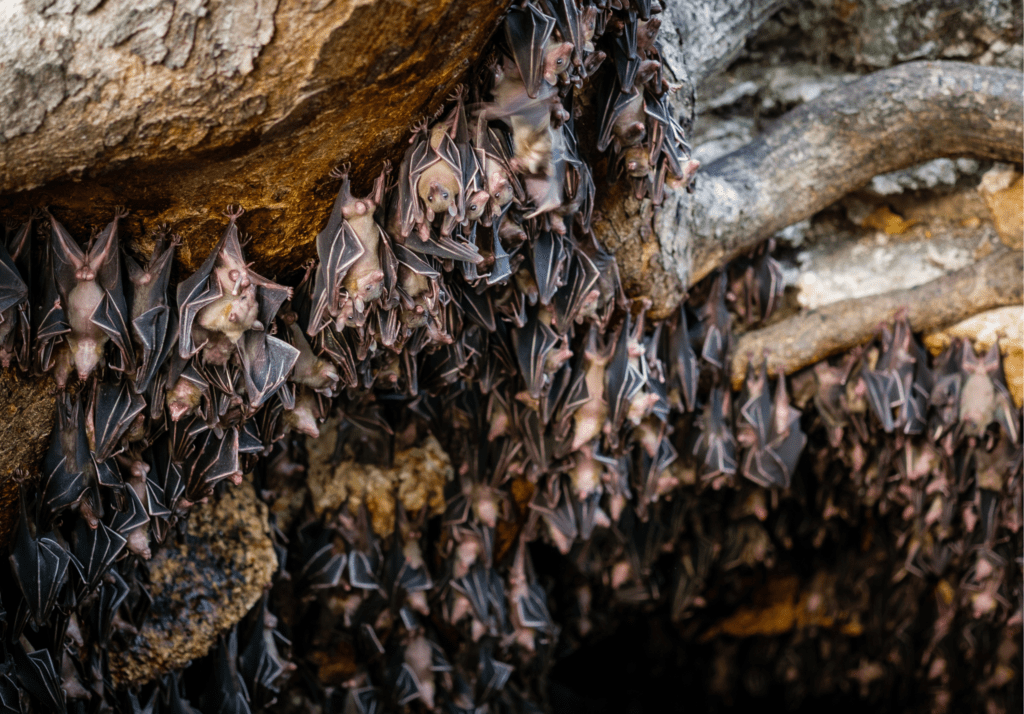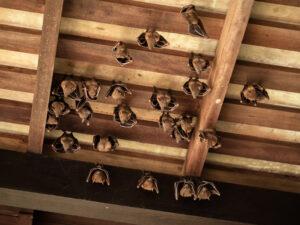
Winter can be a difficult time for bats, as they’re a high energy species, and during the winter, they find their food sources are less than they are during other times of the year. Therefore, bats need to take steps to adapt. Fortunately, they are very adaptable creatures that have evolved all sorts of ways to brace themselves for winter. Read on to learn more about bats and their winter habits.
Some bats hibernate during the winter.
Hibernation is a habit of certain species where they reduce their metabolic rate, heart rate and respiratory rate to survive long times without food. This is helpful in the winter, when food is less readily available. Some species of bats hibernate during the winter, and during this time, they cycle through cycles of torpor, where they reduce energy costs by about 98%, and brief periods of arousal, where their body temperature returns to normal.
Other bats migrate during the winter.
Not all bats hibernate. Some choose migration, moving between summer and winter habitats. They migrate in hopes of finding food in warmer locations. Some bats do both, migrating to locations that are more ideal for hibernation when winter rolls in.
All bats adapt to survive the cold.
Every bat needs to adapt to survive in cold weather. They use up a lot of energy flying around and need to consume a lot of food to go about their daily activities. To keep up their energy when the supply of insects becomes less plentiful, they need to hibernate, migrate or do a combination of both.
Bats change their diets to prepare for winter.
When the supply of insects dries up over the winter, bats need to either migrate to eat or survive without eating for a while. To make this feasible, many bats consume more insects than usual in order to live off their fat stores during the winter months.
Hibernating bats are at great risk due to white-nose syndrome.
White-nose syndrome is a fungal disease that has devastated bat populations in North America. It is thought to be primarily transferred from bat to bat, as it mainly impacts bats that migrate together. However, it can be spread by humans who carry fungal spores on clothing, shoes or equipment.
As pollinators with unique tastes, bats are essential to the environment. However, humans can put them at risk, so if you find them in your home, you need to call Ankeny bat removal professionals like the team at Pro-Staff to make sure they are removed in a safe and humane manner. Call us at 515-279-7378 or contact us online for a free inspection.

